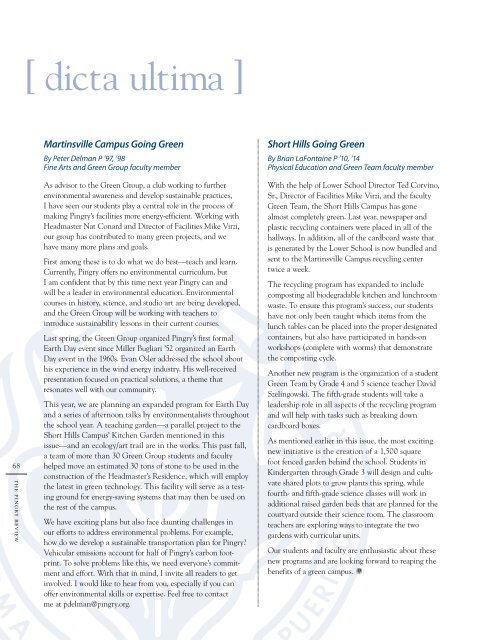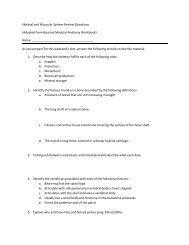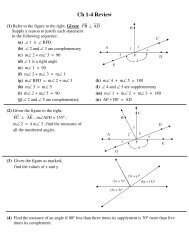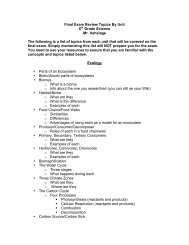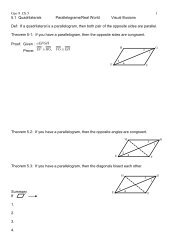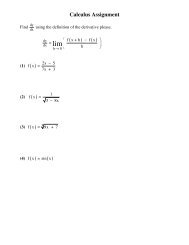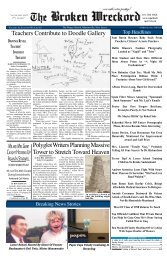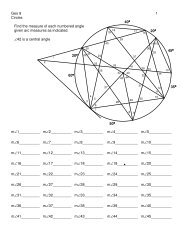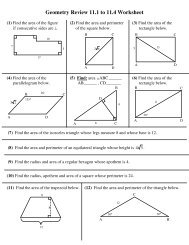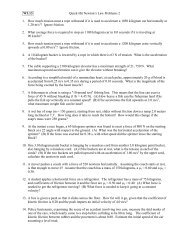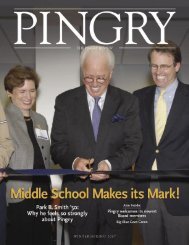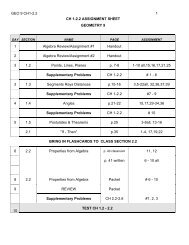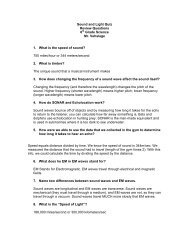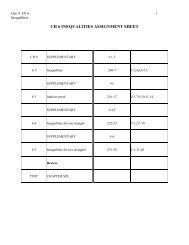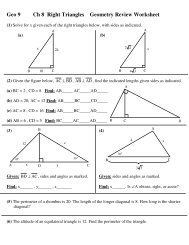Fall/Winter 2010 - Pingry School
Fall/Winter 2010 - Pingry School
Fall/Winter 2010 - Pingry School
You also want an ePaper? Increase the reach of your titles
YUMPU automatically turns print PDFs into web optimized ePapers that Google loves.
[ dicta ultima ]<br />
Martinsville Campus Going Green<br />
By Peter Delman P ’97, ’98<br />
Fine Arts and Green Group faculty member<br />
Short Hills Going Green<br />
By Brian LaFontaine P ’10, ’14<br />
Physical Education and Green Team faculty member<br />
68<br />
the pingry review<br />
As advisor to the Green Group, a club working to further<br />
environmental awareness and develop sustainable practices,<br />
I have seen our students play a central role in the process of<br />
making <strong>Pingry</strong>’s facilities more energy-efficient. Working with<br />
Headmaster Nat Conard and Director of Facilities Mike Virzi,<br />
our group has contributed to many green projects, and we<br />
have many more plans and goals.<br />
First among these is to do what we do best—teach and learn.<br />
Currently, <strong>Pingry</strong> offers no environmental curriculum, but<br />
I am confident that by this time next year <strong>Pingry</strong> can and<br />
will be a leader in environmental education. Environmental<br />
courses in history, science, and studio art are being developed,<br />
and the Green Group will be working with teachers to<br />
introduce sustainability lessons in their current courses.<br />
Last spring, the Green Group organized <strong>Pingry</strong>’s first formal<br />
Earth Day event since Miller Bugliari ’52 organized an Earth<br />
Day event in the 1960s. Evan Osler addressed the school about<br />
his experience in the wind energy industry. His well-received<br />
presentation focused on practical solutions, a theme that<br />
resonates well with our community.<br />
This year, we are planning an expanded program for Earth Day<br />
and a series of afternoon talks by environmentalists throughout<br />
the school year. A teaching garden—a parallel project to the<br />
Short Hills Campus’ Kitchen Garden mentioned in this<br />
issue—and an ecology/art trail are in the works. This past fall,<br />
a team of more than 30 Green Group students and faculty<br />
helped move an estimated 30 tons of stone to be used in the<br />
construction of the Headmaster’s Residence, which will employ<br />
the latest in green technology. This facility will serve as a testing<br />
ground for energy-saving systems that may then be used on<br />
the rest of the campus.<br />
We have exciting plans but also face daunting challenges in<br />
our efforts to address environmental problems. For example,<br />
how do we develop a sustainable transportation plan for <strong>Pingry</strong><br />
Vehicular emissions account for half of <strong>Pingry</strong>’s carbon footprint.<br />
To solve problems like this, we need everyone’s commitment<br />
and effort. With that in mind, I invite all readers to get<br />
involved. I would like to hear from you, especially if you can<br />
offer environmental skills or expertise. Feel free to contact<br />
me at pdelman@pingry.org.<br />
With the help of Lower <strong>School</strong> Director Ted Corvino,<br />
Sr., Director of Facilities Mike Virzi, and the faculty<br />
Green Team, the Short Hills Campus has gone<br />
almost completely green. Last year, newspaper and<br />
plastic recycling containers were placed in all of the<br />
hallways. In addition, all of the cardboard waste that<br />
is generated by the Lower <strong>School</strong> is now bundled and<br />
sent to the Martinsville Campus recycling center<br />
twice a week.<br />
The recycling program has expanded to include<br />
composting all biodegradable kitchen and lunchroom<br />
waste. To ensure this program’s success, our students<br />
have not only been taught which items from the<br />
lunch tables can be placed into the proper designated<br />
containers, but also have participated in hands-on<br />
workshops (complete with worms) that demonstrate<br />
the composting cycle.<br />
Another new program is the organization of a student<br />
Green Team by Grade 4 and 5 science teacher David<br />
Szelingowski. The fifth-grade students will take a<br />
leadership role in all aspects of the recycling program<br />
and will help with tasks such as breaking down<br />
cardboard boxes.<br />
As mentioned earlier in this issue, the most exciting<br />
new initiative is the creation of a 1,500 square<br />
foot fenced garden behind the school. Students in<br />
Kindergarten through Grade 3 will design and cultivate<br />
shared plots to grow plants this spring, while<br />
fourth- and fifth-grade science classes will work in<br />
additional raised garden beds that are planned for the<br />
courtyard outside their science room. The classroom<br />
teachers are exploring ways to integrate the two<br />
gardens with curricular units.<br />
Our students and faculty are enthusiastic about these<br />
new programs and are looking forward to reaping the<br />
benefits of a green campus.


